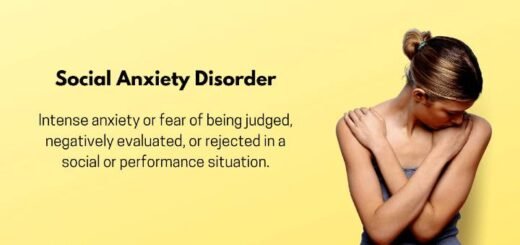Trends and Coping Strategies for Youth Social Phobia in NZ
Social phobia, characterized by intense fear and avoidance of social situations, significantly impacts the mental health of youth in New Zealand. Recent social phobia research highlights alarming trends, revealing that a growing number of young New Zealanders are affected by this condition. These challenges can hinder academic performance, social relationships, and overall well-being, prompting a need for effective coping strategies tailored to this demographic.
In response to the rising prevalence of social phobia, various initiatives and resources have emerged to support affected youth. Social phobia research emphasizes the importance of early intervention and community awareness programs, which can empower young people to manage their symptoms and lead fulfilling lives. By fostering open conversations about mental health and providing accessible resources, New Zealand can better equip its youth to navigate the challenges posed by social phobia.
The Prevalence of Social Phobia Among New Zealand Youth
The prevalence of social phobia among youth in New Zealand has been a growing concern in recent years. Recent studies indicate that approximately 7% of adolescents aged 12 to 18 experience social anxiety disorder, a figure that reflects broader global trends. This condition is characterized by an intense fear of social situations, leading to avoidance behaviors that can significantly impair a young person’s daily life.
Research highlights that social phobia often manifests during the formative teenage years, where social interactions become increasingly complex. Factors contributing to this rise include academic pressure, social media influence, and a lack of awareness surrounding mental health issues. In New Zealand, the cultural emphasis on community and socialization may inadvertently exacerbate feelings of inadequacy among youth experiencing social phobia.
To gain deeper insights into the experiences of young people facing these challenges, it’s essential to refer to the findings of local social phobia research. Understanding these patterns can aid in creating supportive environments that encourage open discussions about mental health.
Understanding the Symptoms of Social Phobia
Recognizing the symptoms of social phobia in youth is crucial for early intervention. Common indicators include excessive worry about social situations, fear of being judged, and physical symptoms such as sweating or trembling when faced with social interactions. These symptoms can lead to significant distress and avoidance, impacting academic performance and social relationships.
In New Zealand, educators and parents play a vital role in identifying these signs. Open dialogues about mental health can encourage youth to share their feelings and seek help. Schools can implement awareness programs that focus on mental well-being, providing students with the tools they need to cope with social anxiety.
Moreover, the Social Phobia Support Network offers resources tailored for young people facing social anxiety, including information on recognizing symptoms and seeking help. By fostering an environment of understanding and support, we can help youth navigate their experiences with social phobia effectively.
The Role of Social Media in Social Phobia
Social media has become a double-edged sword for New Zealand youth, especially regarding social phobia. On one hand, it provides avenues for connection and support; on the other, it can exacerbate feelings of inadequacy and anxiety. Many young people report comparing themselves to curated online personas, leading to increased social anxiety and fear of judgment.
Research shows that excessive use of social media can lead to isolation and exacerbate social phobia symptoms. For example, a youth may feel more comfortable communicating online than in person, which can perpetuate avoidance behaviors. It’s crucial for parents and educators to guide young people on healthy social media usage, encouraging them to engage in face-to-face interactions.
To address this issue, initiatives that promote digital literacy and mental health awareness can be beneficial. The Social Phobia Support Network provides resources that educate youth about recognizing the impact of social media on their mental health and developing coping strategies.
Coping Strategies for New Zealand Youth
Developing effective coping strategies is essential for youth dealing with social phobia. Cognitive-behavioral techniques, such as challenging negative thoughts and gradually exposing oneself to social situations, can be particularly effective. Engaging in mindfulness practices and relaxation techniques can also help alleviate anxiety symptoms.
In New Zealand, youth can benefit from local support groups and workshops focused on anxiety management. Schools and community centers may offer programs that encourage social interaction in a safe, supportive environment. These initiatives not only provide practical skills but also foster a sense of community among participants.
The Social Phobia Support Network is an excellent resource for young people seeking coping strategies. They offer workshops and support groups specifically tailored to help youth navigate their social anxiety and build resilience.
The Importance of Support Systems
Support systems play a vital role in helping New Zealand youth cope with social phobia. Parents, teachers, and peers can provide emotional support and encouragement, making it easier for young people to confront their fears. Open communication about mental health can foster a more understanding environment, allowing youth to feel safe when discussing their struggles.
Peer support groups can also be invaluable. Connecting with others who share similar experiences can help reduce feelings of isolation and provide practical advice on coping mechanisms. Schools can facilitate these groups, creating a safe space for students to share and learn from one another.
Additionally, the Social Phobia Support Network offers resources for establishing effective support systems. Their guidance can help families and educators understand how to best support youth dealing with social anxiety, ensuring they have the necessary tools to thrive.
Accessing Professional Help
Accessing professional help is crucial for New Zealand youth struggling with social phobia. Therapy options, including cognitive-behavioral therapy (CBT) and exposure therapy, are highly effective in treating social anxiety. However, many young people may feel hesitant to seek help due to stigma or fear of judgment.
To encourage youth to pursue professional support, it is important to normalize conversations around mental health. Schools can partner with mental health professionals to provide workshops and informational sessions, educating students on the benefits of seeking help.
The Social Phobia Support Network can connect youth with mental health resources, including local therapists and counselors specializing in anxiety disorders. By promoting accessible professional help, we can empower young people to take charge of their mental health and well-being.
Community Initiatives and Awareness Campaigns
Community initiatives and awareness campaigns play a significant role in addressing social phobia among New Zealand youth. Local organizations and schools can collaborate to promote mental health awareness, reducing stigma and encouraging conversations about anxiety disorders.
Events such as mental health days, workshops, and seminars can provide valuable information and resources to both youth and their families. These initiatives can also foster a sense of community, making it easier for individuals to share their experiences and seek help.
Furthermore, the Social Phobia Support Network actively engages in community outreach, providing resources and support to those affected by social phobia. By promoting awareness and understanding, we can create a more supportive environment for New Zealand youth facing social anxiety, ultimately leading to better mental health outcomes.
FAQs
What is social phobia, and how does it affect youth in New Zealand?
Social phobia, also known as social anxiety disorder, is characterized by an intense fear of social situations that may lead to embarrassment or humiliation. In New Zealand, research indicates that this condition significantly impacts youth, leading to avoidance of social interactions, decreased participation in school activities, and challenges in forming relationships.
What are the trends in social phobia among New Zealand youth?
Recent social phobia research suggests that there has been a rise in reported cases among New Zealand youth over the past decade. Factors contributing to this trend include increased social media usage, academic pressures, and a growing awareness of mental health issues, which may encourage more individuals to seek help and report their experiences.
What are the common symptoms of social phobia in young people?
Common symptoms of social phobia in youth include excessive self-consciousness, fear of judgment in social settings, physical symptoms like sweating or trembling, and avoidance of situations where they might face scrutiny. These symptoms can interfere with daily activities, including school and social relationships.
What coping strategies are effective for New Zealand youth dealing with social phobia?
Effective coping strategies for managing social phobia include cognitive-behavioral therapy (CBT), which helps individuals challenge and change negative thought patterns. Additionally, mindfulness practices, gradual exposure to feared social situations, and support from family and friends can significantly aid in overcoming anxiety.
How can parents support their children with social phobia?
Parents can support their children by fostering open communication about their feelings, encouraging gradual exposure to social situations, and seeking professional help if necessary. Understanding the condition and providing a supportive environment can help mitigate the effects of social phobia on their youth.
Are there any resources available for youth suffering from social phobia in New Zealand?
Yes, there are numerous resources available, including counseling services, mental health organizations, and support groups specifically designed for youth with social phobia. Organizations such as the Mental Health Foundation of New Zealand offer valuable information and support for both individuals and families.
What role does education play in addressing social phobia among youth?
Education plays a crucial role in addressing social phobia, as it helps to raise awareness about mental health issues among students, teachers, and parents. School programs that promote mental well-being, provide coping strategies, and create a supportive environment can significantly aid in reducing stigma and encouraging those affected to seek help.
References
- New Zealand Social Phobia Network – A dedicated resource for information on social phobia, providing support and strategies for individuals affected in New Zealand.
- Youth Health and Wellbeing Survey 2021 – A comprehensive report by the New Zealand Ministry of Health that includes data on mental health issues among youth, including social phobia.
- Youth Mental Health Research – An overview of research focused on youth mental health in New Zealand, highlighting trends and coping mechanisms in relation to conditions like social phobia.
- Mental Health, Youth, and Creative Expression – An article discussing the intersection of youth mental health and creative outlets as coping strategies, relevant to social phobia.
- Mental Health Services for Young People – Information from Te Whatu Ora on available mental health services for young individuals in New Zealand, including support for social phobia.




